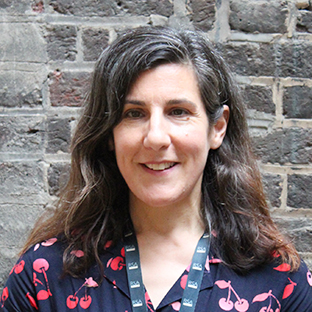How a local Fellowship meet-up in Suffolk and a trip to Buurtzorg, a pioneering health organisation in the Netherlands, inspired Cecilia Tredget FRSA to launch her own person-centred community nursing initiative closer to home.
Soon after becoming a Fellow Cecilia Tredget, a local government leader in the East of England, went along to her local RSA group in Ipswich to meet other Fellows, unsure what to expect. The group was small and disparate but united by a common purpose of creating positive social change. As a first step they embarked on a human-centred design course, creating healthy food options for students.
“Becoming a Fellow opened my mind to the possibility of designing public services differently.” - Cecilia Tredget FRSA
The experience of coming together with Fellows of different backgrounds, disciplines and skills was just the spark Cecilia needed to design change closer to home.
At West Suffolk House council offices in Bury St Edmunds social workers, housing officers and health workers had recently been co-located on the third floor: “It was the perfect opportunity to explore new ways of integrating services, to challenge our thinking and involve service-users to co-design improvements to the way we do things”.
Over the next few weeks, through a series of collaborative workshops, learning lunches and frontline visits, an idea took shape: how could they support older people to live in their own homes and communities after a hospital stay? What would a truly person-centred service, delivered locally, designed around the person’s needs really look like?
The journey of design and discovery took Cecilia and her team to Holland to find out more about the pioneering Dutch model of community nursing, known as Buurtzorg, or ‘neighbourhood care’. Founded by RSA Albert Medallist Jos de Blok, and managed in the UK and Ireland by Brendan Martin FRSA, Buurtzorg is built around self-managed, nurse-led teams providing personal and health care to people in their own homes.
Back in Suffolk, Cecilia began to explore what it would take to make that happen locally. “Every politician embraced the idea 110 per cent. They caught sight of a better service that would benefit their communities”. It took a little longer to win the trust of commissioners and budget-holders, to persuade them that devolving power to the frontline could work: “I think they thought it a bit bohemian”.
There was also work to be done to engage a workforce with no experience of self-management: “They’d been so disempowered, they had no appetite for it”. But Cecilia persisted. Funds were finally agreed in November 2016, Buurtzorg nurses were recruited in autumn 2017 and the prototype was launched in January 2018.
Cecilia’s team are helping to grow other Buurtzorg-inspired teams in the East of England. Local Fellows are exploring how they can support similar care models in their local communities through the RSA Cambridge group which Cecilia now co-leads.
For Cecilia, Fellowship gave her “the encouragement to look at things differently, to test long-held assumptions and to cast the net more widely”. The change for nurses and patients in West Suffolk, she says, has been nothing short of ‘transformational’.
Related articles
-
Rachel Drapper: Featured Fellow Q&A
Rachel Drapper
Rachel Drapper, CEO and founder of Fairshare, discusses domestic labour inequity, gender roles and the way forward for those in our community who are striving for equity inside and outside the home.
-
RSA Fellows making an impact in the LGBTQ+ community
Maeve Devers Kirby Fullerton
Learn about just a handful of RSA Fellows doing innovative work to bring about social change in the LGBTQ+ community.
-
Comment at the RSA: coming full Circle
Mike Thatcher
The RSA has launched a Comment 'space' on its Circle community platform as it moves to a Circle-first approach for comment articles authored by Fellows.




Join the discussion
Comments
Please login to post a comment or reply
Don't have an account? Click here to register.
I work for Kent Community Health NHS Foundation Trust and we are currently introducing self directed teams as a way of working for our community nurses. I would be very interested in learning more about how Cecilia's team are helping to grow other teams using the Buurtzorg model.